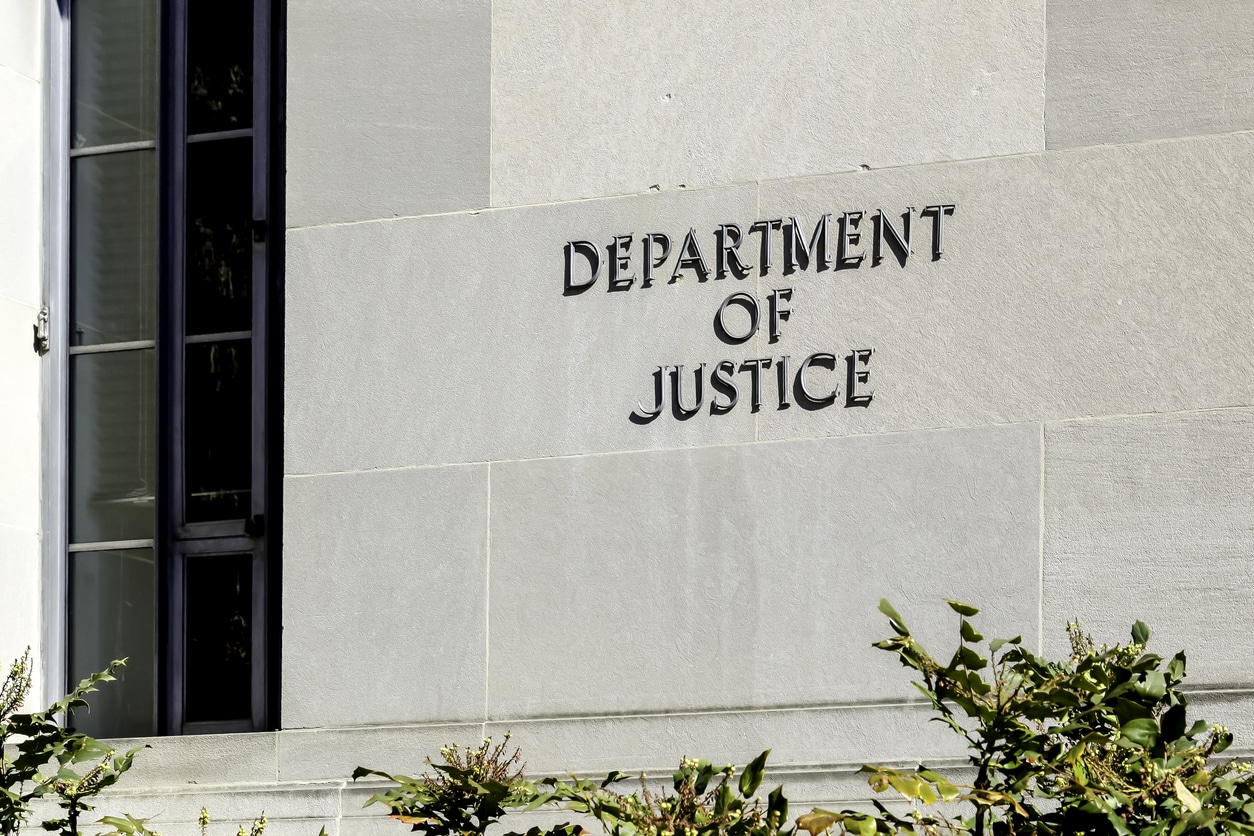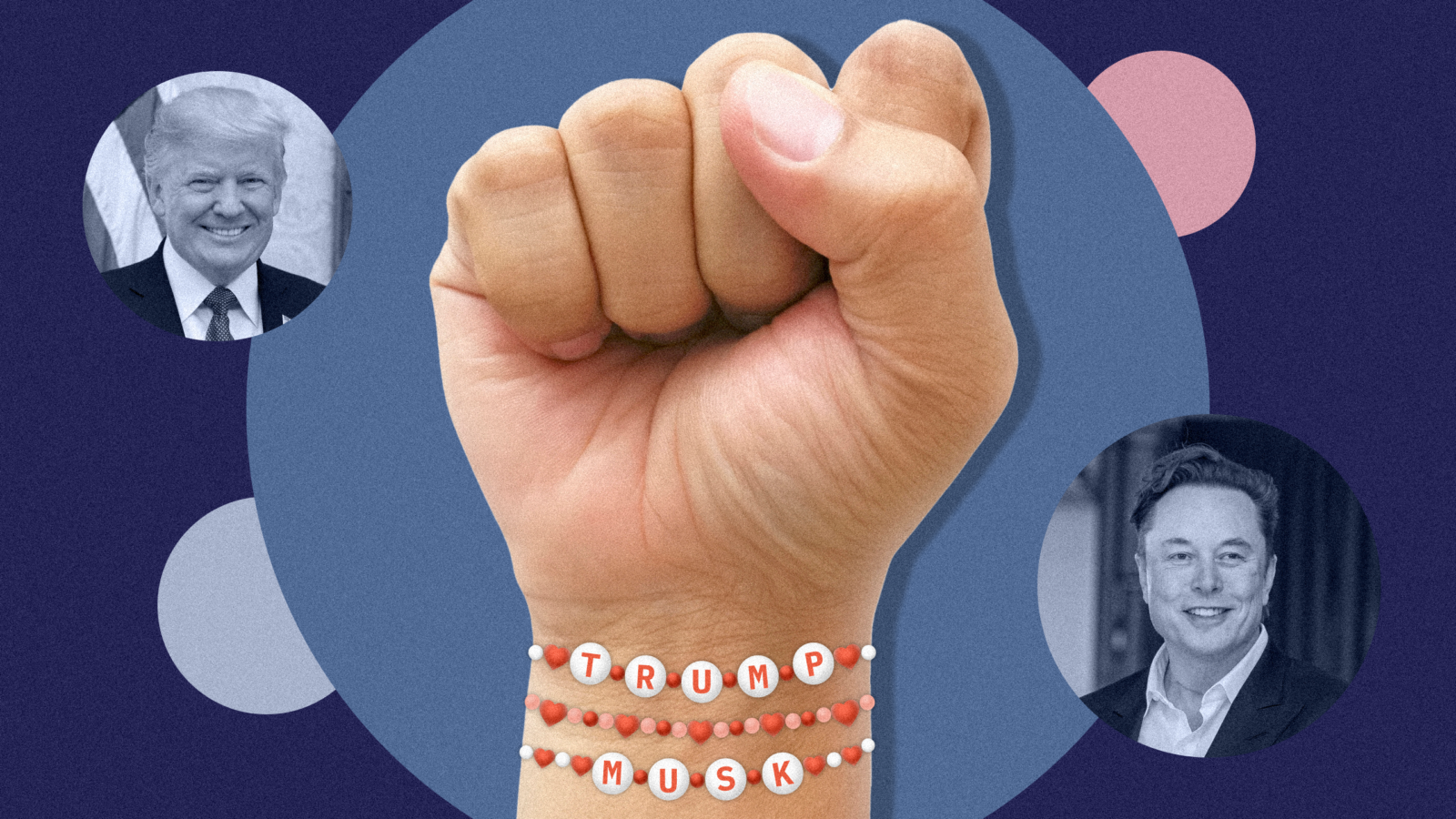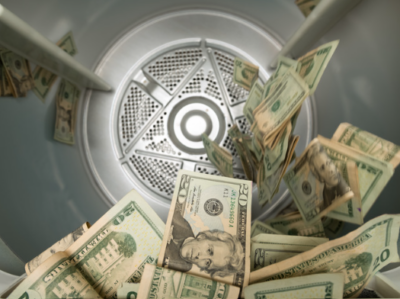Trump, Game Theory and the Next U.S. Election
As the number of state and federal cases against Donald Trump begin to pile up, other questions are coming to the fore. Specifically, if his legal travails make it increasingly difficult for him to run for the nation’s highest office,…

Sign up to unveil the relationship between Wall Street and Washington.
It is easy to get lost in the partisan caterwauling surrounding the multiple investigations into former president Donald Trump, but as the number of state and federal cases against him begin to pile up, other questions are coming to the fore. Specifically, if his legal travails make it increasingly difficult for him to run for the nation’s highest office, how will it affect the next presidential election?
Trump has already made clear he has no intention of voluntarily stepping away from the race, even if criminal charges are brought. “Oh, absolutely, I won’t even think about leaving,” he stated before a speech over the weekend. And in response to questions from journalists about the possibility of an indictment, he predicted, “probably it’ll enhance my numbers, but it’s a very bad thing for America. It’s very bad for the country.”
He’s not wrong. There’s not much of an upside to, or precedent for, criminally indicting a former president for failing to properly account for a $130,000 payment to a former stripper and pornographic film actress. Such a charge is expected to be brought as soon as this week by Manhattan district attorney Alvin Bragg.
Earlier this year, a case Bragg brought against the Trump Organization resulted in $1.6 million in fines against the company after it was convicted on 17 counts for criminal tax fraud, conspiracy and the falsification of business records in a scheme that lasted 15 years. Trump was not pulled directly into that case, but his name came up during the proceedings many times.
This next legal onslaught may be a bit different, as it would be the first time in history a former president could be indicted. Further complicating the situation is that Trump does not plan to go quietly, calling on his supporters (in all caps, naturally) on his online channel Truth Social to “PROTEST, TAKE OUR NATION BACK!”
In a searing piece this week, the editorial board of The Wall Street Journal also denounced Bragg’s move:
“It’s impossible to overstate Mr. Bragg’s bad judgment here. Perhaps the local Democratic DA has discovered some new proof of criminal behavior. But based on the public evidence so far, he would be resurrecting a seven-year-old case that even federal prosecutors refused to bring to court.”
It is believed that any charge brought by Bragg would primarily hinge on allegations related to the falsification of business records to pay for the silence of the pornographic actress, Stormy Daniels, ahead of Trump’s presidential election victory in 2016. That would ordinarily be a misdemeanor in New York state, the Journal noted, but “Mr. Bragg might bump it up to a felony by claiming the falsification was to cover up an illegal campaign-finance donation” to Trump’s campaign. For his part, Trump admitted he authorized the payment to Daniels (her real name is Stephanie Clifford), but denies the two had a sexual relationship. Little-known fact: Daniels sued Trump for defamation after he tweeted that her claims of being threatened to remain silent about their alleged affair were a “total con job” in a case she fought all the way to the Supreme Court. The court declined to hear the case.
The turmoil does not show any sign of slowing. Trump is also facing a potential indictment in Georgia over accusations he interfered with the certification of the 2020 presidential election, and he eventually may have to answer to a federal indictment in connection with the January 6 insurrection. Considering the raft of troubles Trump is confronting, even if he wanted to leave public life, it could be perilous to do so.
Why? Well, as a presidential hopeful in the 2024 race, he’s in a position to endlessly appeal for donations, raise funds for his legal battles and maintain the position that his legal problems amount to nothing more than a political witch hunt. “Some people say he’s not even interested in running anymore,” says Maria Gallego, a professor of economics at Wilfrid Laurier University in Waterloo, Ontario, who specializes in politics, elections and game theory. “But he doesn’t want to be out of the public eye, because he wants the protection of being a candidate. If he drops out, he cannot collect campaign money, he cannot raise funds to pay for his legal battles or support himself so, in a way, he cannot stop running for president.”
As long as Trump campaigns, every fight he undertakes can also effectively be a proxy for the presidential race he lost, with the onus on whether he will be allowed to run again – and win – or have his chances dashed, as many of his supporters believe happened in 2020.
It is clear Trump’s legal battles will certainly impact the election. But what about its outcome? There are some who believe Trump’s fate, whatever it may be, will not stop President Biden from winning a re-election if he runs again, as he is the incumbent and has already won against Trump. Indeed, Trump is the only incumbent to have lost a presidential election since 1992, failing to join the ranks of Bill Clinton, George W. Bush and Barack Obama. But Trump’s gambit has always been to be so lowly rated as to be underrated. And that allows him to surprise.
It is early days, but recent polls between President Biden and Trump show a very tight race. Trump’s lead over the field of Republican contenders, including Florida Gov. Ron DeSantis, also widened this month from last month, according to a survey out last week from Quinnipiac University, with Trump garnering 46 percent of the vote from Republican-leaning respondents versus DeSantis at 32 percent.
The poll showed other Republican hopefuls, such as former South Carolina Gov. Nikki Haley and former Vice President Mike Pence struggling in the single digits against Trump and DeSantis. When asked to pick between Trump and DeSantis in a head-to-head matchup, 51 percent chose Trump over DeSantis, who drew 40 percent of the vote.
It’s more than 600 days until the election. What happens with these numbers over time is anyone’s guess. But those claiming that Democrats want Trump to run for president in 2024 because they think he will be the easiest to beat, might want to think again. “He looks like the Teflon man,” Gallego says.
Even if a non-Trump candidate does win the GOP nomination – which is far from assured, given Trump’s sticky support – they will have Trump gunning for them, tearing them down, chiseling at their vote, every day until election day. Remember Trump’s words last week at the Conservative Political Action Conference: “I am your warrior. I am your justice. And for those who have been wronged and betrayed, I am your retribution.”
The theme of vengeance is palpable on this particular Trump tour – and it is unlikely to spare his Republican opponents. It is also unlikely President Biden will be tangling with the same division in his own party, should he win the nomination.
In short, the fate of Trump very well may affect the outcome of the next presidential election, but he may turn out to be a bigger problem for Republicans than Democrats. “He is hurting no group more than the GOP,” Gallego says. “You can make some projections. He will be attacking the other Republican candidates. If he keeps his base of support and starts getting rid of the other candidates, nullifying them like he did in 2016, it could be very damaging.”
From this view, there’s no scenario where the GOP doesn’t have a ferociously contested, chaotic landscape ahead.
This article is from Power Corridor, which delivers propulsive insights on Wall Street and politics into your inbox every Wednesday and Friday. Subscribe here.
The views expressed in this op-ed are solely those of the author and do not necessarily reflect the opinions or policies of The Daily Upside, its editors, or any affiliated entities. Any information provided herein is for informational purposes only and should not be construed as professional advice. Readers are encouraged to seek independent advice or conduct their own research to form their own opinions.











